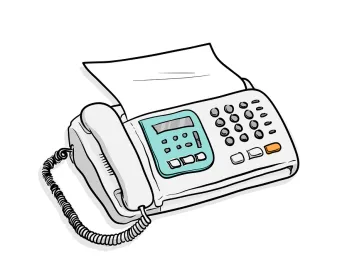The Northern District of Illinois recently issued an order that denied defendants an opportunity to present “individualized challenges” to the members of a certified class in a TCPA fax case. The court determined that the defendants waived their right to challenge whether certain members of the class were entitled to recover because defendants did not assert their objections at the time the court approved the initial class notice.
Specifically, in Physicians Healthsource, Inc. v. A-S Medication Solutions LLC, the court initially certified a class of all individuals who received a fax advertisement from defendants and granted summary judgment for the plaintiff class on the question of liability. No. 12-cv-5105, 2018 WL 6179094, at *1 (N.D. Ill. Nov. 27, 2018). Plaintiffs subsequently filed a motion for entry of judgment asserting that no issues remained for trial since they sought only the statutory amount of $500 per fax. Id. Plaintiffs requested entry of a judgment for $5,709,000, representing 11,418 violations (4 class members opted out) at $500 per violation. Id.
Defendants objected. They argued that before the court could enter judgment, there must be an opportunity for “individualized challenges to claims of purported class members.” Id. Defendants asserted that they should be able to “challenge class members who lack standing or the right to recover.” Id. Defendants proposed a claim form that would have required the recipient to state whether he, she, or it: (a) owned the fax machine connected to the pertinent fax number; (b) subscribed to the fax number; (3) purchased paper or toner for the fax machine connected to the number; and/or (4) personally reviewed and/or was inconvenienced by receipt of the fax. Id.
The court denied the objection and entered judgment against defendants for $5,709,000. Id. at *3. The court held that a series of three decisions from the Seventh Circuit in Holtzman v. Turza foreclosed defendants’ contentions. Id. at *2 (citing Holtzman v. Turza, 728 F.3d 682 (7th Cir. 2013) (“Holtzman 1”); Holtzman v. Turza, 828 F.3d 606 (7th Cir. 2016) (“Holtzman 2”); Holtzman v. Turza, 701 F. App’x 506 (7th Cir. 2017) (“Holtzman 3”)). We previously covered the Holtzman II decision on this blog and the post can be found at this link.
The court noted that in Holtzman 1, the Seventh Circuit determined that a common fund-type recovery is inappropriate in a TCPA class action and that the recipients of the faxes, not the class as a whole, are entitled to any damages awarded. Physicians Healthsource, 2018 WL 6179094, at *2 (citing Holzman 1, 728 F.3d at 688). The Seventh Circuit said that each recipient must show that his or her fax machine or computer received the fax, but that the record of where the faxes were sent was sufficient to show this; recipient-by-recipient adjudication was not necessary. Id. (citing Holzman 1, 728 F.3d at 684-85).
The Physicians Healthsource court determined that the same was true in the case presented because it involved records, which were not subject to legitimate dispute, showing the names and fax numbers of those to whom the faxes were sent. Id. The records served as the basis for sending notice to the members of the class following entry of the class certification order. Id. In short, there was no mystery regarding the identity of the fax recipients/class members and the court held that the named recipients were the individuals entitled to recover damages. Id. The court concluded that the defendants were not entitled to any further procedural steps to determine the “correct” recipients prior to entry of judgment. Id.
Critically, the court noted that at the time the class notice was originally presented to the court, defendants did not oppose plaintiffs’ proposed list of recipients. Id. The court held that “[i]f defendants had a legitimate objection that the class actually included more persons than the named recipients, that—not now—was the time to assert it.” Id. Finally, the court determined that even if the defendants did not waive their objections, they had no legitimate basis to contest whether the members of the class had a right to recover due to the previously discussed records. Id.





 />i
/>i
